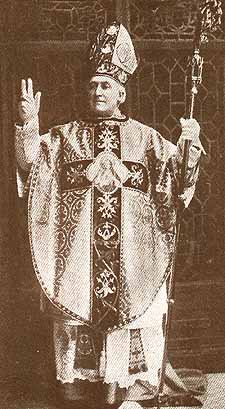"Theosophy and
Christianity: A Comparison" by the mysterious author M. Carta Sturge (is M
Carta a reference to the Magna Carta, I wonder?) is a critique of Adyar
Theosophy and Anthroposophy published in 1917 by the Society for Promoting
Christian Knowledge. The author had also penned polemical tracts against
Christian Science.
The anti-Theosophical polemic is surprisingly "soft", and actually concedes that Theosophy and Anthroposophy (regarded as a variant of Theosophy by the author) might be correct on a number of points, including the existence of spirit-worlds, planetary chains and reincarnation. Nor does the author mention the various scandals surrounding Blavatsky, Besant and Leadbeater. Instead, Sturge says that many Theosophists live upright lives based on high ethical standards! His (or her) main criticism of Theosophy is its insistence on the law of karma, which makes remission of sins and redemption impossible.
Sturge doesn't believe that Theosophical cosmic evolution will eventually create a new and better man. Rather, reincarnation simply takes us back where we started. The world is fallen, a kind of samsaric existence. By his death on the cross and subsequent resurrection, Jesus has liberated humanity from the karmic law and its consequences. Sturge also believes that Theosophy is incomplete, since it only talks about the mystical "Christ within us" and the redemption of the spirit, while Christianity also believes in the redemption of physical matter and the human body. In similar manner, the Gospels are both allegorical *and* literal, containing both a spiritual message and reporting real events. Unsurprisingly, the author believes that all religions contain glimmers of truth, while only Christianity has truth in its fullness.
To all intents and purposes, M Carta Sturge hasn't really negated Theosophy (not even the non-Christian notion of reincarnation), but rather superimposed Christianity on top of it. This makes his criticism of Blavatsky and Besant rather unusual, making me wonder who the author might have been. A Christianized Theosophist, perhaps?

No comments:
Post a Comment